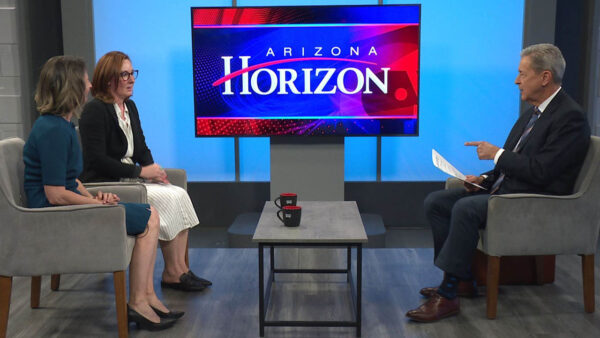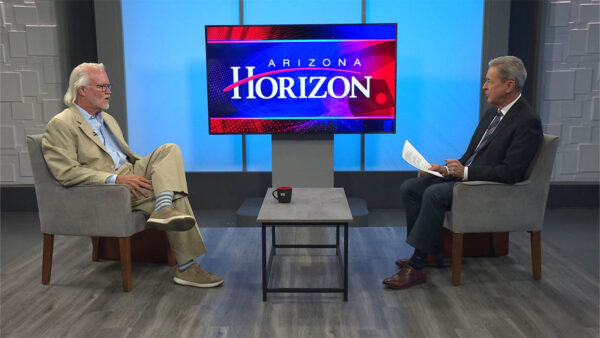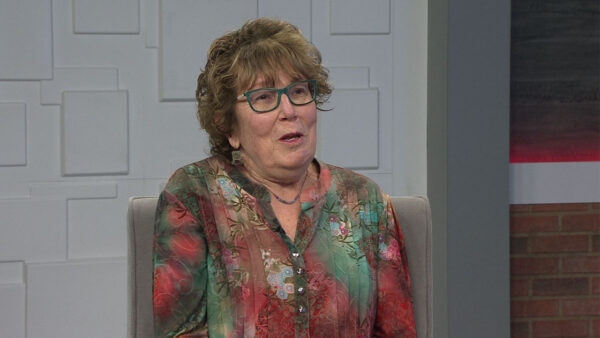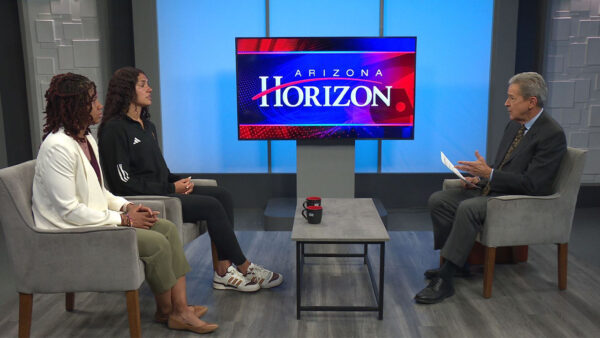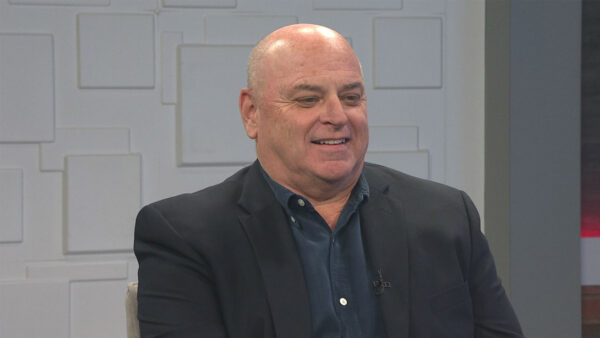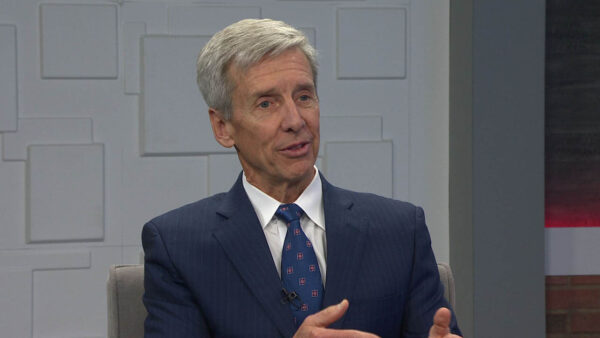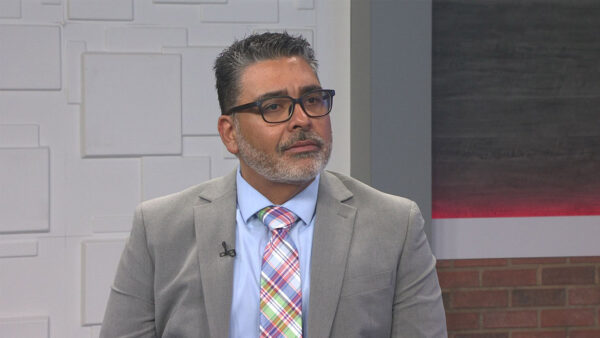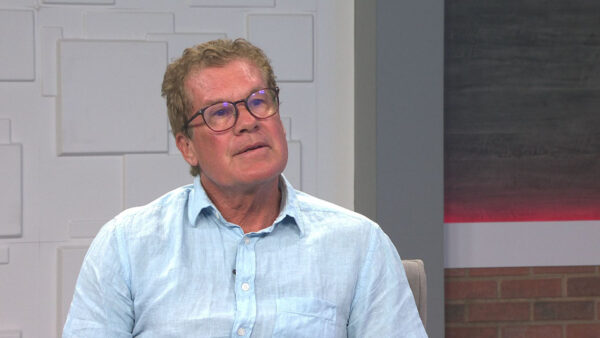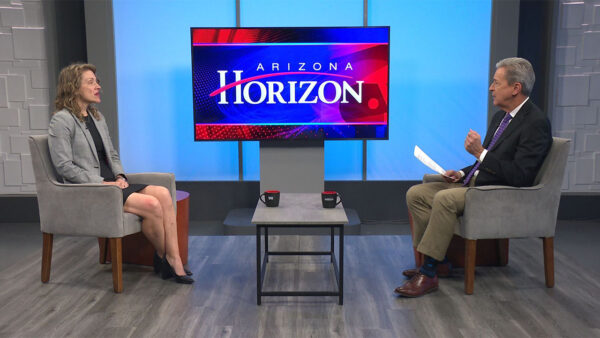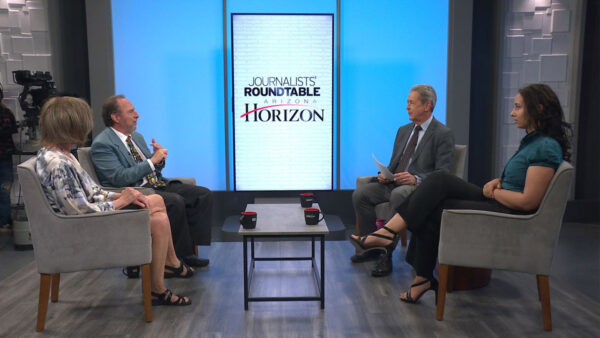The Federal Emergency Management Agency has declined to declare the Yarnell Hill Fire area a disaster area. Also, the family of one of the firefighter’s killed in the blaze is fighting to get death benefits. House Speaker Andy Tobin will address those issue
Ted Simons: The Federal Emergency Management Agency has declined to declare the Yarnell Hill fire a major disaster. This as the city of Prescott has denied death benefits for many of the firefighters killed in the fire. House speaker Andy Tobin is here to address both of those controversial and emotional issues. It's good to have you here.
Andy Tobin: Thanks for having me.
Ted Simons: Let's start with FEMA. The federal disaster aid for Yarnell denied. What are your thoughts?
Andy Tobin: Well, it's not just my thoughts. The minority leader of the house Chad Campbell came out, and we collectively today we went ahead and wrote to the President and said, please reconsider this. This community lost 20% of their structures. I know this is a little town, but these are taxpayers, too. And we've had other emergencies, Hurricane Sandy, several of them out there, that's Arizona taxpayer money, too, going there. For them they've waited so long, and to say, "You don't qualify," seems almost intentional to me. I have to admit I'm pretty disappointed in the President, I'm especially disappointed in how long they took to get us here, and I respectfully request they help us again. Take a look at this. I've got 30-something percent of these people under the poverty line anyway. We don't need all their help. This is just a little hands up to some few folks. And I think it was a snub right at Arizona directly at us.
Ted Simons: FEMA's response was that the severity and magnitude of the fire was not enough.
Andy Tobin: Well, I would share with you, if that's the place, why did it take them a month to do it? I would also share with you, if that's their status, every rural community in the country should be nervous about whether they're ever going to get support from the federal government.
Ted Simons: Do you think that's a factor, the rural-urban --
Andy Tobin: yeah, absolutely. There's not a lot of people in that town, the sheriff evacuated that town so quickly, I was down there that Saturday night, Sunday night, it was a very difficult time, very difficult event. We watched in the darkness as you can watch these propane tanks, it was the only thing you could see by it was so dark. It's surreal. This was a Hurricane Sandy to those people who don't have their home. This was a Hurricane Sandy to those people who have nothing now. And there weren't very many of them that didn't have insurance or many that were underinsured, there's going to be some problems with of course getting up to code, things like that. But Arizonans are strong, we'll be fine. But to treat them this way is just beyond call.
Ted Simons: Where would the money have gone?
Andy Tobin: Well, what FEMA does that would have allowed federal people to help with -- First off, loans. To help those who are struggling. And for those who are so under the poverty line, there would be some grant money. It's not like it's a whole lot for each person. But $38,000, that could help you get the next step up. And maybe you could get the loan to move forward. So the answer -- There wasn't going to be a whole lot of money in it, but we've got a water infrastructure problem out there, the pipes are old, they broke through this fire crisis, and I have fire trucks that are in difficult way, it wasn't fire-related, but this is old equipment, we still have a responsibility to help these people get themselves to a safety area. And we have a helicopter pad that can use help. This community, they're not out there begging. They just want what everybody else gets.
Ted Simons: The feds responded in the letter saying that state and local governments were capable of this kind of help, and when you mention how few people there are and how little money it is, it almost in some respects make their argument, that you guys can handle this.
Andy Tobin: But I would then argue there are other -- We went back with billions of dollars for Hurricane Sandy. The answer is, we do have -- We have expanded our emergency funding that we did this last budget. So we've already expanded it. But at the end of the day, these are federal taxpayers, this is on state lands, we get it. But at the end of the day, these folks have the same losses that somebody else somewhere else in the nation has. So does that mean New Jersey and the Tri-City area couldn't do that? Baling them out was a mistake? I don't think so. I think Arizonans were happy to be part of helping build up the East Coast again.
Ted Simons: I've seen criticism saying that these people should have had insurance. How do you respond to that? Because some of these folks are underinsured, or no insurance. That's a pretty dangerous way to live.
Andy Tobin: It's dangerous to live that way anyway, but when I mentioned how many people below the poverty line, that sends a message. These folks have paid off their house over time, but they can't afford insurance anymore, they're struggling. The west side of the street is gone. It's gone. There's some old, old structures. A lot of Yarnell was built on some of these old tailings, so you have infrastructure that's bad, they might not have been able to get insurance because they have an old building. It's going to happen. Everybody isn't insured. And everybody can't afford that. And that's why you have neighbors trying to help and the Red Cross has been great, we have had great response. The President shouldn't have snubbed his nose at us.
Ted Simons: Last point, and that just saying the president snubbing -- There's some who are saying that it's hypocritical for Arizona leaders who are so critical of the government, and so critical of federal aid in so many ways, now saying, why not us, why not now? Respond to that, please.
Andy Tobin: I'd be happy to respond to it. I want our federal dollars to come back here. But if you're not going to have an emergencies theme applies to everybody, don't have Arizonans pay for everybody else's emergency stuff. That's my response. I don't have a problem with the government stepping in and helping with infrastructure, helping taxpayers, helping Americans who have worked all their lives to put their lives back together. We're a very generous nation, very generous state. But does that mean Arizona shouldn't be at least asking, hey, we should expect some help. This is pretty much across the board, this was a mistake of theirs.
Ted Simons: I want you to comment about the death benefits for the seasonal and temporary workers. I'm hearing folks saying these are seasonal, temporary workers, they knew what they signed up for. And this is something that they didn't expect. But it was within the deal. How do you respond to that?
Andy Tobin: It is within the deal. Here's the response. The only way that many of these smaller towns can have these hotshots is if they have permanent workers and they have seasonal and part-timers around them. They can't afford it any other way. I get that. We don't want to lose that. But if at the end of the day you are losing lives that are not having their beneficiaries compensated, I think it makes it more difficult for to us maintain some of these hotshot crews, who are saving our homes all across the state. So I'm not saying Prescott made any mistakes, I know what everybody signed, I get it. But this is an exceptional situation. 19 people just don't die in our fires every day. The law is the law, we can put attorneys down here and fight every day about whether they signed this or not. But what's right is, is that if you have folks who are fighting on state land protecting your home and mine, our families, they should be treated, their families should be treated the same.
Ted Simons: You're drafting legislation, what will that call for and is this seasonal and temporary firefighters all seasonal and temporary workers?
Andy Tobin: This has to do with anyone on state land. Anyone killed on state land fighting -- First responders of any kind.
Ted Simons: First responders.
Andy Tobin: That's exactly right. There's three different bills. One is to help the city of Prescott, because those who were permanently protected, and were on pensions, the city of Prescott will have liability going forward for those families, they have to contribute into that pool. Well, I think we've missed it somewhere along the line, we should have some sort of blanket catastrophic coverage for these incidents that may occur down the road. So they're going to be additionally hurt. One bill helps the city, one bill helps the beneficiaries as we go forward. We have to find a way to do, that make sure we're not having a problem with our gift clause. And the other one has to do with protecting that site where we lost 19 firefighters.
Ted Simons: A special session likely?
Andy Tobin: I don't know. We'll have to -- Representative Justin Pearce is very anxious to start moving forward and making sure we're dotting the Is and crossing the Ts on these bills, so I think when we're ready to go we'll let the governor know and the Senate President has been very supportive, and Senate Democrats, House Democrats, House Republicans all seem to be on board with trying to find the right way to go.
Ted Simons: Very quickly -- Does the state need to look again at the issue of municipal employees working, doing anything on state lands?
Andy Tobin: Well, I don't know what you mean by that. I don't know if we'd have to look at it all over again.
Ted Simons: In terms of protection, benefits, coverage?
Andy Tobin: Yeah. Well, I'm just going to tell you, if we're going to put somebody on fire line and they're risking their lives and their families should know the state of Arizona will take care of them.
Ted Simons: Speaker, thank you so much for joining us. We appreciate it.
Andy Tobin: Thanks for having me.
Andy Tobin:House Speaker, Arizona;





